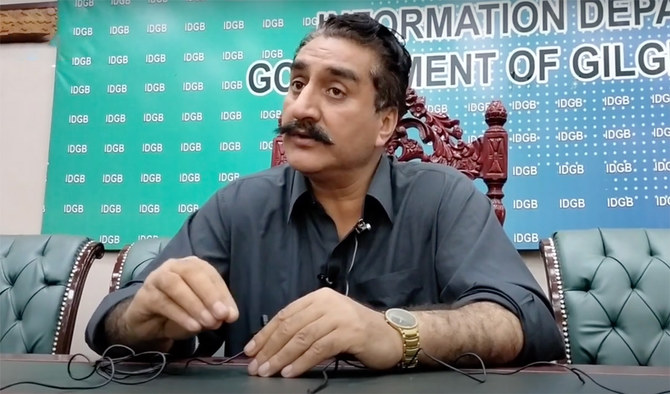SINGAPORE: India switched tactics after suffering losses in the air on the first day of conflict with Pakistan earlier this month and established a decisive advantage before the neighbors announced a ceasefire three days later, India’s highest ranking general said on Saturday.
The heaviest fighting in decades between nuclear-armed India and Pakistan was sparked by an April 22 attack in Indian-administered Kashmir that killed 26 people, most of them tourists. New Delhi blamed the incident on “terrorists” backed by Pakistan, a charge denied by Islamabad.
On May 7, Indian jets bombed what New Delhi called “terrorist infrastructure” sites across the border. Pakistan has said it downed six Indian planes, including at least three Rafale fighters, in the initial clashes.
The ceasefire was announced on May 10 after bitter fighting in which both sides used fighter jets, missiles, drones and artillery.
General Anil Chauhan, India’s chief of defense staff, said in an interview that India suffered initial losses in the air, but declined to give details.
“What was important is, why did these losses occur, and what we’ll do after that,” he told Reuters on the sidelines of the Shangri-La Dialogue security forum in Singapore, referring to the Pakistani claim of downing jets.
“So we rectified tactics and then went back on the 7th, 8th and 10th in large numbers to hit air bases deep inside Pakistan, penetrated all their air defenses with impunity, carried out precision strikes.”
The Indian air force “flew all types of aircraft with all types of ordinances on the 10th,” he said.
India has previously said its missiles and drones struck at least eight Pakistani air bases across the country that day, including one near the capital Islamabad.
The Pakistan military says that India did not fly its fighter jets again in the conflict after suffering losses on May 7.
India’s director general of air operations, Air Marshal A.K. Bharti, had told a press conference earlier in the month that “losses are a part of combat” and that India had downed some Pakistani jets.
Islamabad has denied it suffered any losses of planes but has acknowledged its air bases suffered some hits although losses were minimal.
NO NUCLEAR WORRIES
Some of the attacks were on bases near Pakistan’s nuclear facilities, but they themselves were not targeted, media reports have said.
“Most of the strikes were delivered with pinpoint accuracy, some even to a meter, to whatever was our selected mean point of impact,” Chauhan said.
Chauhan, and Pakistan’s chairman of the joint chiefs of staff, Gen. Sahir Shamshad Mirza, have both said there was no danger at any time during the conflict that nuclear weapons were considered.
“I think there’s a lot of space before that nuclear threshold is crossed, a lot of signalling before that, I think nothing like that happened,” Chauhan said. “There’s a lot of space for conventional operations which has been created, and this will be the new norm.
“It’s my personal view that the most rational people are people in uniform when conflict takes place,” he added. “During this operation, I found both sides displaying a lot of rationality in their thoughts as well as actions. So why should we assume that in the nuclear domain there will be irrationality on someone else’s part?“
Chauhan also said that although Pakistan is closely allied with China, which borders India in the north and east, there was no sign of any actual help from Beijing during the conflict.
“While this was unfolding from (April) 22nd onwards, we didn’t find any unusual activity in the operational or tactical depth of our northern borders, and things were generally all right.”
Asked whether China may have provided any satellite imagery or other real-time intelligence to Pakistan during the conflict, Chauhan said such imagery was commercially available and could have been procured from China as well as other sources.
He added that while hostilities had ceased, the Indian government had made it clear it would “respond precisely and decisively should there be any further terror attacks emanating from Pakistan.”
“So that has its own dynamics as far the armed forces are concerned. It will require us to be prepared 24/7.”
















